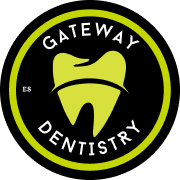
Fill gaps caused by 1 to 3 missing teeth
A dental bridge restores the appearance and health of your mouth by covering spaces with a false tooth supported by either dental implants, your natural teeth, or a combination of both. Sometimes referred to as a ‘fixed partial denture’, bridges are bonded or cemented to your teeth and do not need to be removed to sleep or to clean them. Filling tooth gaps is important, not just for appearances, but for your long-term oral health. Missing teeth can make it difficult to speak or chew food and, with a gap, other teeth are free to shift around.Long-lasting benefits of dental bridges
A missing tooth or teeth can leave us feeling self-conscious and uncomfortable. A dental bridge is a great way get your smile looking and feeling normal again, but it also offers long term benefits for your other teeth and the bone health of your mouth. To sum it up, here are the advantages of a dental bridge:
Comfort
These are the obvious advantages because they affect us right now. Feel and look normal again. Smile and eat with confidence and get back the smile you know and love. Missing teeth just don’t feel great and sometimes gaps make it difficult or painful to speak or eat. Dental bridges are a long-lasting solution to discomfort caused by missing teeth – more than ten years with proper care.
Tooth health
Your teeth support each other and contribute to your facial structure. Missing teeth can alter your bite and leave space for other teeth to shift around. A dental bridge blocks teeth from shifting around reducing the risk of decay, periodontal disease, jaw pain and TMJ disorder caused by rogue teeth.
Bone health
Healthy, stable teeth encourage healthy jawbones. As our dental health diminishes so does the health of bone and tissues that support our teeth. Stabilizing your dental health with a dental bridge will slow the rate of bone loss from your missing teeth.
The cost of a dental bridge in Kanata
The cost of a dental bridge can vary widely from patient to patient. With a typical insurance plan, a dental bridge averages out to about $800 to $1200+. Without insurance, a reasonable ball-park figure for a bridge would be about $2000 to $3000 and up.
- The type of bridge and the material used to make it.
- The number of teeth that are missing.
- The location and complexity of the procedure.
- The condition of the teeth adjacent to the gap.
- Supplies and equipment that are required for your specific treatment.
What goes into determining the cost of a dental bridge?
Remember, no dental practice can provide an accurate quote over the phone. Ultimately, your needs are as unique as your smile. It’s important to speak with a dentist and undergo an oral exam to find out all your treatment options and to receive an accurate quote. If you have dental insurance, we would be happy to supply you with a quote to submit to them so you can find out your out-of-pocket costs before you make a decision.
Contact us today
to schedule an initial consultation & exam.
Your consultation will include an examination of everything from your teeth, gums and soft tissues to the shape and condition of your bite. Generally, we want to see how your whole mouth looks and functions. Before we plan your treatment we want to know everything about the health and aesthetic of your smile, and, most importantly, what you want to achieve so we can help you get there.
Frequently Asked Questions









